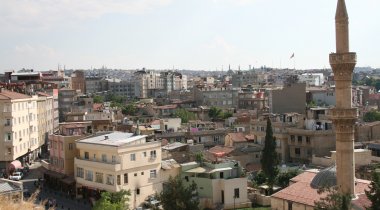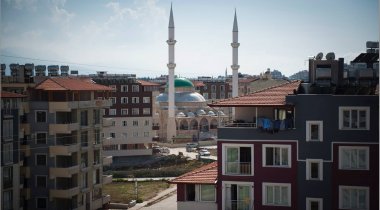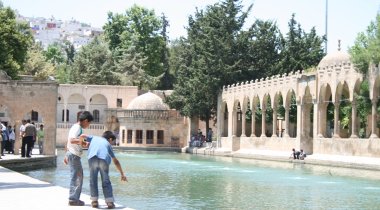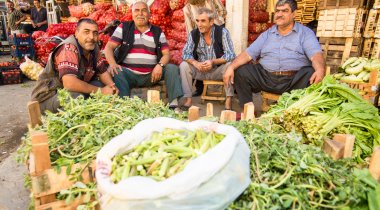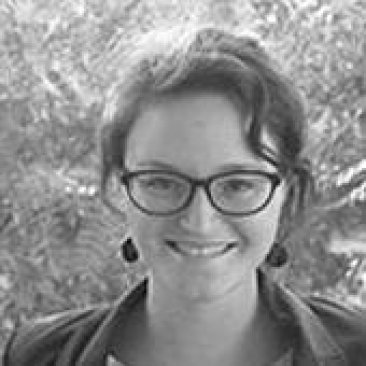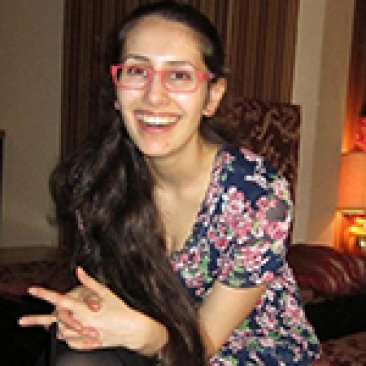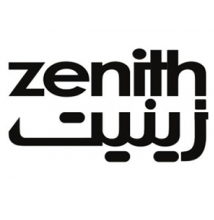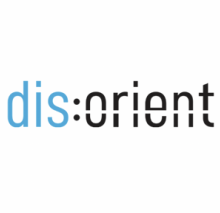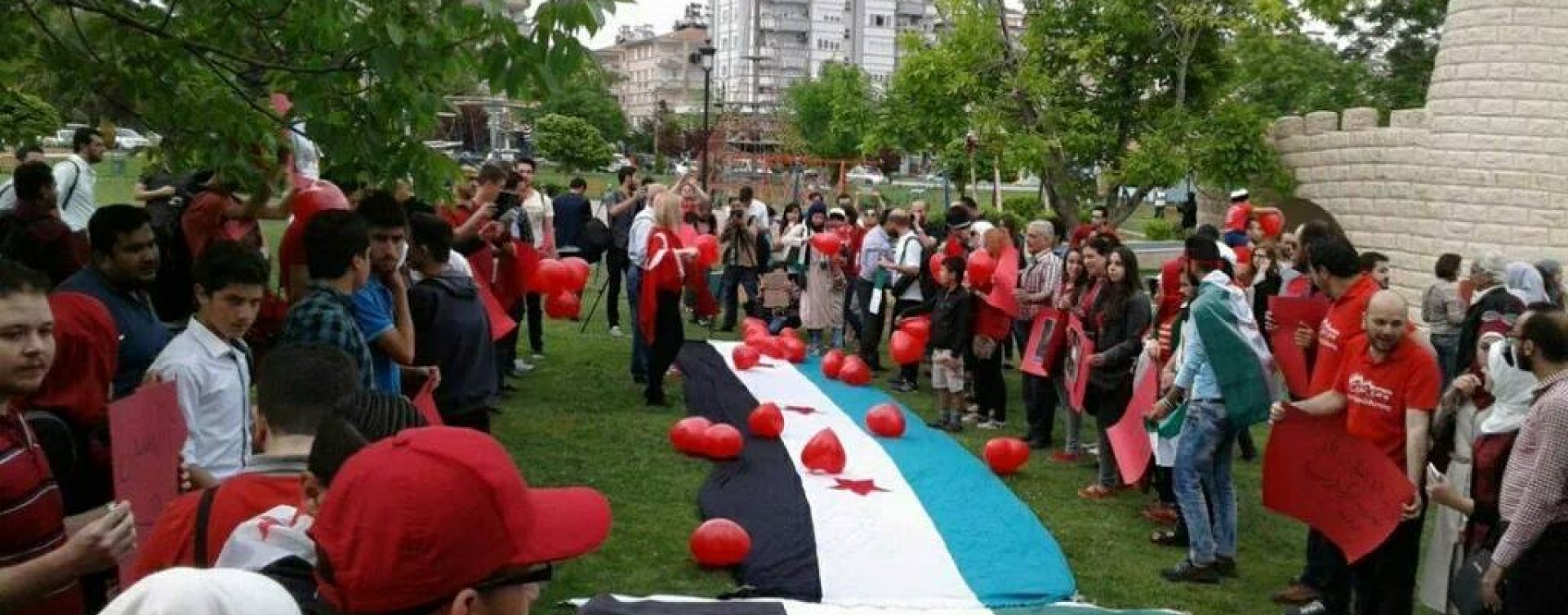
Tour Date:
Turkey is the country that has witnessed the largest influx of refugees from Syria. Today it has become a temporary home for about 3 million Syrians who fled their homeland in order to escape either Bashar Al Assad’s brutal and deadly breakdown on large parts of the country or Islamic militias who profited from the reluctance of the regime to fight them.
A relatively safe haven for Syrians
Southern Turkey which borders Syria has hence become the first relatively safe haven for refugees on their way out of the country. Many had wanted or still want to move on to Europe and settled temporarily, others prefer to watch the unfolding events in Syria from close-by, awaiting the possibility of their return. Turkish cities such as Gaziantep, Antakia or Kilis have become centers of Syrian life in the diaspora. Gaziantep with its hundreds of thousands of Syrian inhabitants is nowadays nicknamed “little Aleppo”, Syrian food and products are omnipresent in the city.
Syrians in Southern Turkey are facing many challenges to which they react in different and multiple ways: while some are engaged in the support of their relatives, friends and fellow Syrians in Syria, others have created a large network of support and aid for the Syrian community in Turkey. With one eye always turned towards Syria, Syrians in Turkey have managed to create a vivid and pluralist civil society which keeps the memory of Syria and the vision of a return alive through various educational, political, social and religious activities. It is here that political alternatives to Bashar Al Assad’s regime are envisioned and developed and where the opposition and peaceful resistance movements take shape. During our trip we will meet several of these protagonists of change.
Meeting Syrian protagonists of change
Our trip aims at providing participants with a first hand insight into the multiple and diverse actors and activities of the Syrian diaspora community in Turkey. During our stay, we will pay visits to the main centers of Syrian life in the Turkish South, meeting and engaging with the different Syrian communities in these cities. Through lectures, political tours and discussions we will learn about their work in Turkey, be it aimed at supporting civil society in Syria itself or at building and creating a civil society in Turkey. We will learn about the role women play in this process of community building and meet International, Turkish and Syrian NGOs that work in the cities to provide humanitarian aid to the refugees.
Focus Areas of our Program
We will start our trip in Gaziantep, the city that has become the diaspora captial of activism and resistance against Bashar al Assad's dictatorship. Briefings about the situation in Syria and meetings with Syrian civil society organizations will shape the stay in the city. Being based in Gaziantep, we will visit Kilis for a day trip: Kilis is the only Turkish city with more Syrian than Turkish citizens inhabiting the place. Due to its location next to the Turkish-Syrian border Kilis has been an entry point for millions of refugees. At the same time the city has been vital for bringing in humanitarian aid to Aleppo Province. In Kilis we will focus on the humanitarian situation in Syria, the situation of refugees in Turkey and the effects of the war in Syria on border areas. Further, we will spend two days in Şanlıurfa with its marvellous old city. Due to its proximity to "ISIS"-controlled areas, it was here that Syrian citizen journalists started to report about the atrocities commited by the Islamist terror organization. We will meet courageous activists that stood up both against Assad's and the "ISIS" terror regime. Our journey will end in Antakya, one of Turkey’s most ethnically and religiously diverse cities. In Antakya region that was only ceded from Syria to Turkey in 1939, we will focus on matters of religous coexistence and the population's historical sense of belonging.
The trip will be organized by Alsharq in cooperation with AlHakam Shaar, a scholar from Aleppo. He has spent several years in Turkey and has first hand contacts and networks in the Syrian community in Turkey. He is now based at the Central European University of Budapest, working as a researcher for the “Aleppo Project” which works on a future reconstruction of Aleppo by means of archiving its heritage, mapping the city’s rich history and envisioning an after-war perspective for the urban center that Aleppo once was and will hopefully be again.
Encounters and discussions are going to be dominant features of this educational trip. If you interested in the many touristic attractions in Southeast Turkey, we advise you to extend your stay in Turkey for a few more days.
The trip might be of special interest for journalists and people who are working with Syrian refugees and/or civil society activists.
Normalpreis
Ermäßigt
Der Reiseverlauf:
- Introduction to Itinerary
- Characterization of Gaziantep
- Visit to Old City and the Souq
- Discussion with Activist who witnessed all stages of the Syrian Revolution
- Briefing on current situation in Syria by representatives of the Orient Policy Center
- Discussion on Media Activism with Syrian activist
- Dinner in a Syrian Open Air Restaurant
- Discussion with member of the NGO Kesh Malek on educational activities in the liberated areas
- Meeting with representatives of the oppositional Damascus Declaration
- Dinner discussion with activists on local committee work in Syria at Gaziantep's most famous Restaurant
- Talks with people living in the border town and the nearby refugee camp
- Meeting with UNHCR or other group working with refugees
- Meeting with the Syrian Economic Forum on empowering the business ecosystem during the Syrian transition period
- Discussion with Activists about grassroot journalism
- Talk with female activists on chances, changes and challenges the revolution has brought for women in Syrian and Turkey
- Meetings with activists who lived under ISIS and regime rule
- Time to shop in the beautiful Souq of Urfa
- Historical introduction to the region, the special case of Hatay/Iskandarun and recent ties between the border areas in Turkey and Syria
- Visit of farm that supports food sovereignty projects in Syria
- A region of diversity: Introduction to the different religious and ethnic groups living in Hatay province
- Meeting with an independent doctors' association: Self-organization in the medical field and the impact of injured people on society
- Skype talk with people living on the other side of the border in Idleb province: The problematic of closed borders
- Evaluation of trip
- Departure
